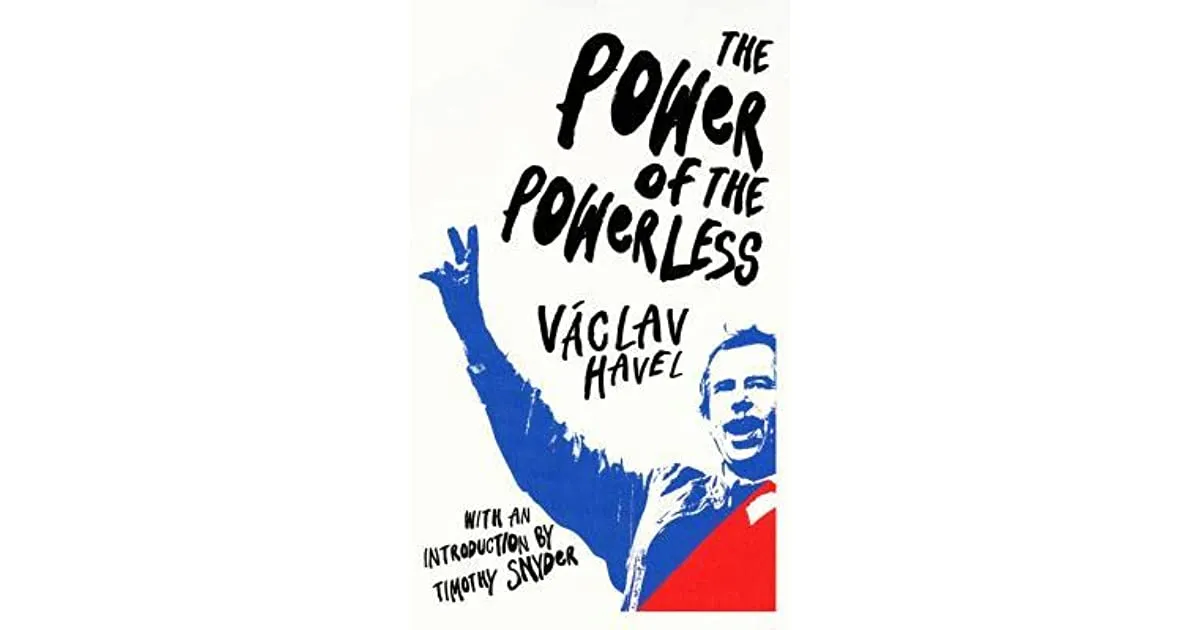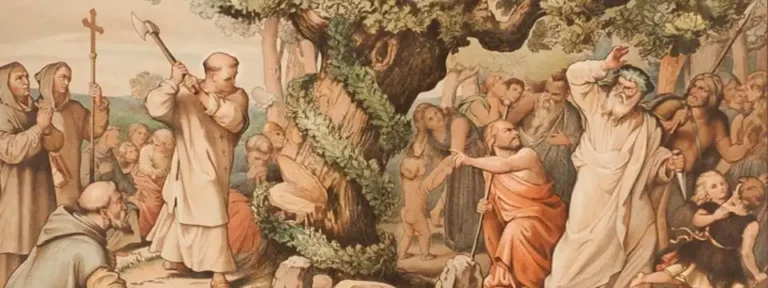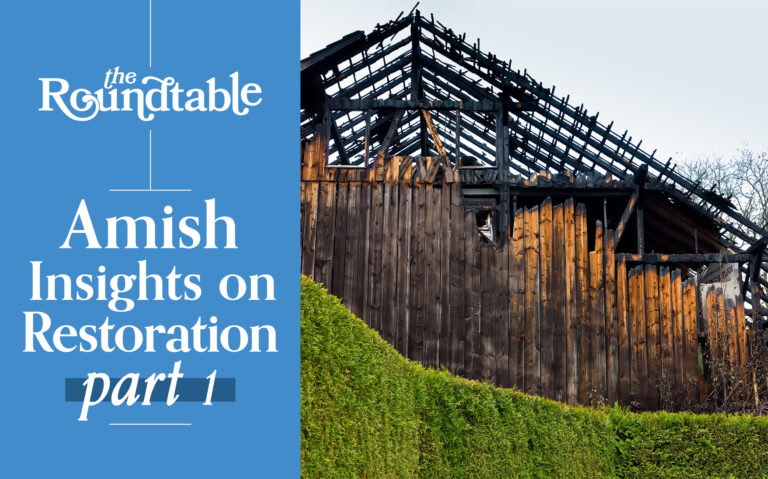I recently finished reading what I believe to be the most important political essay of our time. It’s called The Power of the Powerless and it was written by Václav Havel, a political dissident in the Communist Czechoslovak Socialist Republic who went on to become the President of Czechoslovakia after the fall of the Communist Regime.
His essay is so profoundly illuminating and refreshing to read as an American dissident under the Communist Oligarch Regime of the United States. Havel uses a Green Grocer as a central character throughout the essay to illustrate a prototypical Regime slave. People we would mock today as “NPCs” of the system.
The Green Grocer hangs up a sign in his store window, “Workers of the World, Unite!” not because he believes in workers of the world united but rather to virtue signal to the world that he is an obedient slave of the Regime. This is not unlike the businesses that fly pride flags or hang up Black Lives Matter signs in their establishments today. It’s not unlike the teens posting black squares on Instagram. It’s not unlike the people putting their pronouns in their email signatures.
As I read the essay I was captivated by Havel’s description of what it was like to “live within the lie” of the Communist regime in Czechoslovakia. The parallels between his descriptions of the people, the culture, and the political system of his time were all too familiar to what American right wing dissidents are witnessing and experiencing today.
“The post-totalitarian system touches people at every step, but it does so with its ideological gloves on. This is why life in the system is so thoroughly permeated with hypocrisy and lies: government by bureaucracy is called popular government; the working class is enslaved in the name of the working class; the complete degradation of the individual is presented as his or her ultimate liberation; depriving people of information is called making it available; the use of power to manipulate is called the public control of power; and the arbitrary abuse of power is called observing legal code; the repression of culture is called its development; the expansion of imperial influence is presented as support for the oppressed; the lack of free expression becomes the highest form of freedom; farcical elections become the highest form of democracy; banning independent thought becomes the most scientific of world views; military occupation becomes fraternal assistance. Because the regime is captive to its own lies, it must falsify everything.”
Sound familiar?
Havel even accurately describes the phenomena of President Trump and the unfortunate outcome of his attempt to “drain the Swamp,” which ended with him “losing” in a rigged election and becoming a vaccine salesman on behalf of the Swamp itself.
In any case, experience has taught us again and again that this automatism (the Regime) is far more powerful than the will of any individual; and should someone possess a more independent will, he or she must conceal it behind a ritually anonymous mask in order to have an opportunity to enter the power hierarchy at all. And when the individual finally gains a place there and tries to make his or her will felt within it, that automatism, with its enormous inertia, will triumph sooner or later, and either the individual will be ejected by the power structure like a foreign organism, or he or she will be compelled to resign his or her individuality gradually, once again blending with the automatism and becoming its servant, almost indistinguishable from those who preceded him or her and those who will follow.”
Perhaps one of the most stunningly accurate things Havel describes is the Communist society’s utter lack of morality.
The profound crisis of human identity brought on by living within a lie, a crisis which in turn makes such a life possible, certainly possesses a moral dimension as well; it appears, among other things, as a deep moral crisis in society. A person who has been seduced by the consumer value system, whose identity is dissolved in an amalgam of the accoutrements of mass civilization, and who has no roots in the order of being, no sense of responsibility for anything higher than his or her own personal survival, is a demoralized person. The system depends on demoralization, deepens it, is in fact a projection of it into society.
So what is Havel’s solution to this madness?
Not politics. He mentions several times that it’s useless to participate in a rigged political system with fixed outcomes. Instead, he calls for the same thing I am calling for right now: the formation of a parallel systems.
There can be no way around it: no matter how beautiful an alternative political model may be, it can no longer speak to the ‘hidden sphere,’ inspire people and society, call for real political ferment. The real sphere of potential politics in the post-totalitarian system is elsewhere: in the continuing and cruel tension between the complex demands of that system and the aims of life, that is, the elementary need of human beings to live, to a certain extent at least, in harmony with themselves, that is, to live in a bearable way, not to be humiliated by their superiors and officials, not to be continually watched by the police, to be able to express themselves freely, to find an outlet for their creativity, to enjoy legal security, and so on. Anything that touches this field concretely, anything that relates to this fundamental, omnipresent and living tension, will inevitably speak to people.
Abstract projects for an ideal political or economic order do not interest them to anything like the same extent–and rightfully so–not only because everyone knows how little chance they have of succeeding, but also because today people feel that the less political policies are derived from a concrete and human ‘here and now’ and the more they fix their sights on an abstract ‘some day,’ the more easily they can degenerate into new forms of human enslavement.
People want to be able to live authentically in the truth as themselves. To speak and express themselves freely. They aren’t interested in more false promises from politicians. They want something in the here and now that can instantly solve this problem for them. Sounds a lot like Gab to me, which is why Gab continues to grow and resonate with tens of millions of people.
These parallel structures, it may be said, represent the most articulated expressions so far of ‘living within the truth.’ One of the most important tasks the ‘dissident movements’ have set themselves is to support and develop them. Once again, it confirms the fact that all attempts by society to resist the pressure of the system have their essential beginnings in the pre-political area. For what else are parallel structures than an area where a different life can be lived, a life that is in harmony with its own aims and which in turn structures itself in harmony with those aims?
What else are those initial attempts at social self-organization than the efforts of a certain part of society to live–as a society– within the truth, to rid itself o the self-sustaining aspects of totalitarianism and, thus, to extricate itself radically from its involvement in the post-totalitarian system?
What else is it but a non-violent attempt by people to negate the system within themselves and to establish their lives on a new basis, that of their own proper identity?
I’ve been writing about building a parallel economy, parallel internet infrastructure, and a parallel society for about a year now. There’s a reason Havel went on to become the President after the Communist Regime fell. Even though he wasn’t very keen on being President or getting involved with politics he served his country and his people by leading them up from the ashes of the former system. As always there are no new ideas under the sun, but I believe the idea of a parallel Christian economy is an idea whose time has come and Havel proved that building parallel systems works.
We can and must build parallel Christian systems in order to authentically live within the Truth of God’s Word.
To God be the Glory,
Andrew Torba
CEO, Gab.com
Jesus is King





